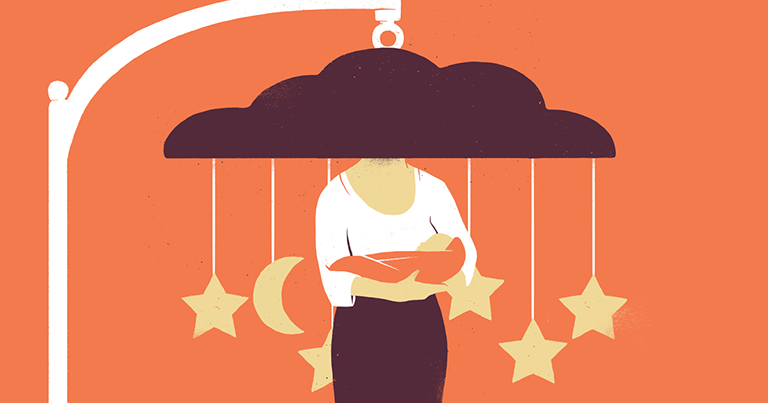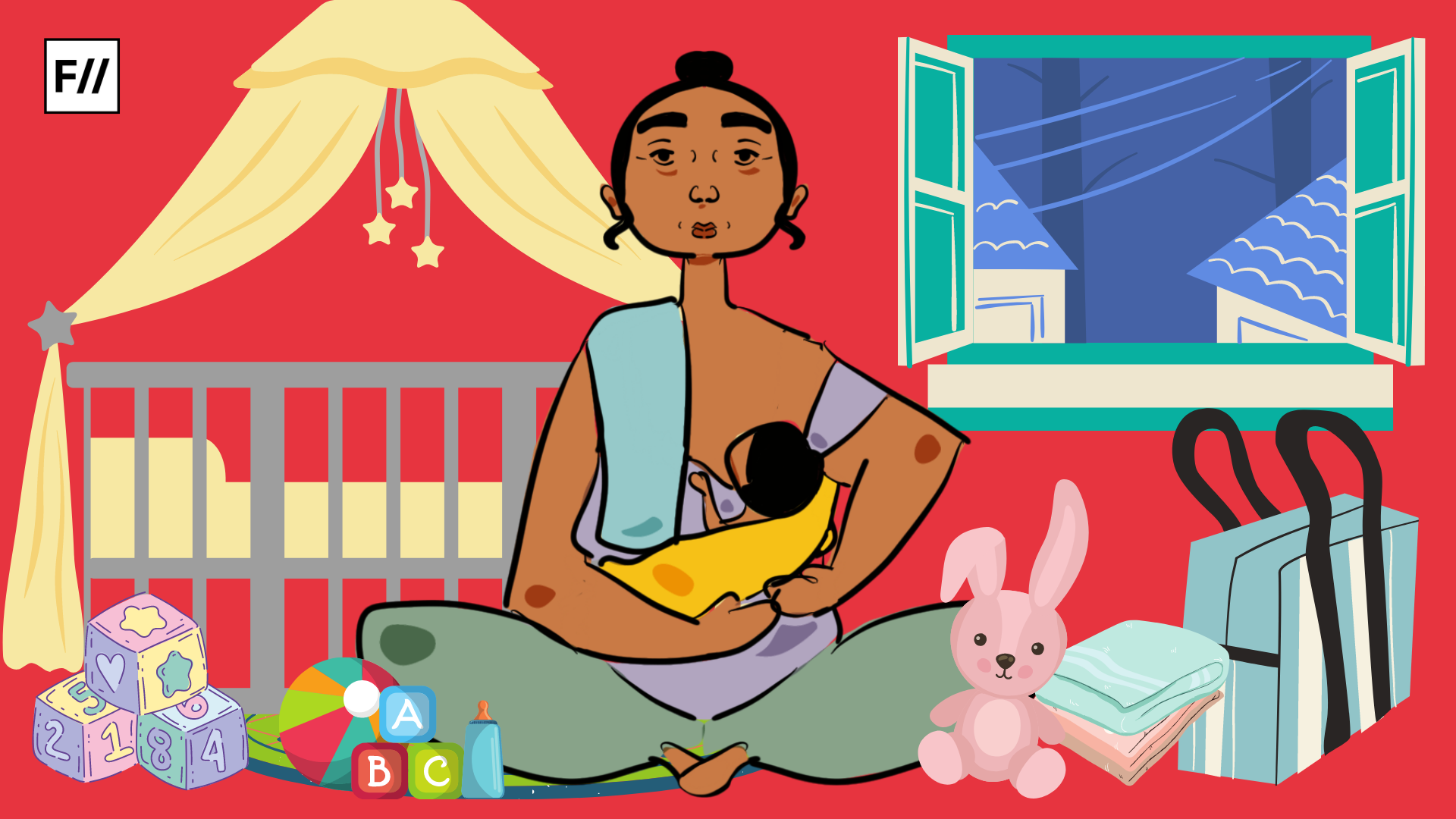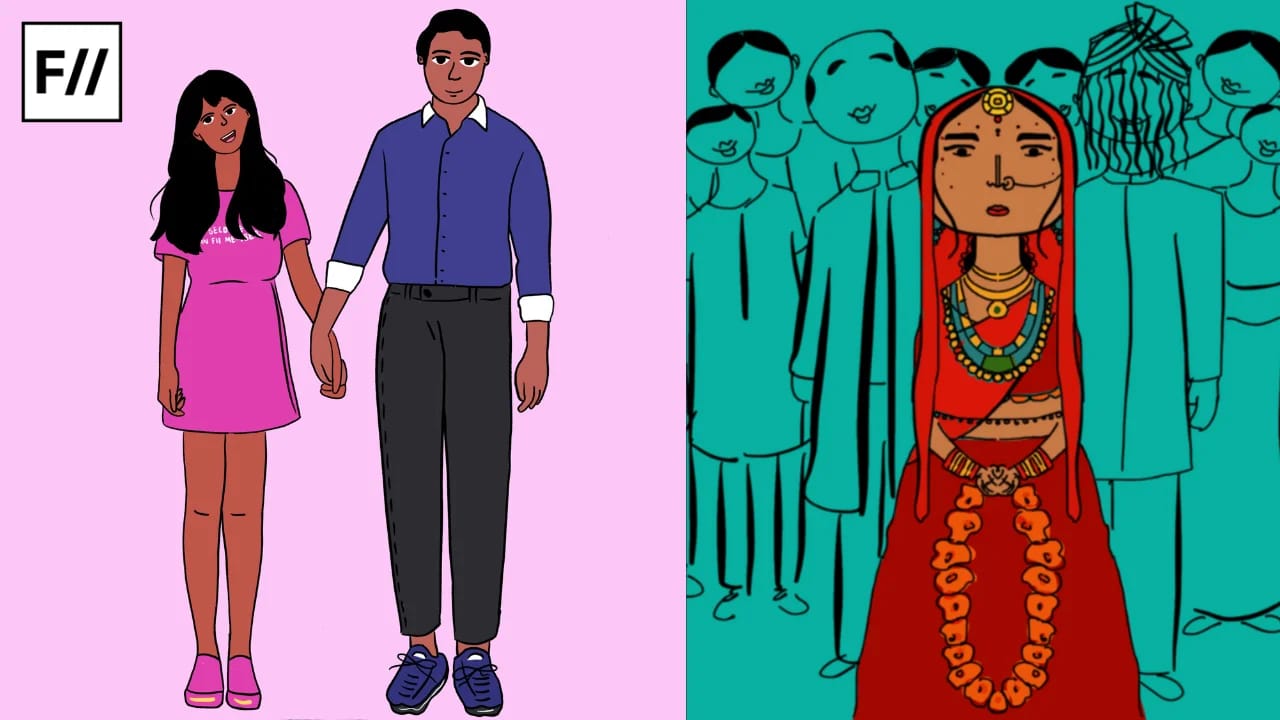The birth of a child can evoke a wide range of strong emotions alternating between joy and excitement to dread and anxiety. In some birth givers, it results in depression. This is called Postpartum Depression (PPD) and it is estimated that one in nine new mothers suffer from postpartum depression.
Postpartum Depression is a complex mix of physical, emotional, and behavioral changes that happen in some birth givers after child birth. This is a kind of severe depression that typically begins within four weeks after delivery. The diagnosis of postpartum depression is based not only on the length of time between the delivery and onset of symptoms, but on the severity of the depression. PPD is linked to chemical, social, and psychological changes that happen when having a baby. The term describes a range of physical and emotional changes that many new mothers experience.
In previous generations, mental health during and after pregnancy was not addressed and it has always been overlooked. Even today symptoms go unrecognised and are often kept hidden from others due to fear and shame. When new mothers feel depressed at a time when everyone expects them to be cheerful, they may feel embarrassed, ashamed, or guilty. They may also be concerned about being labeled as bad mothers.
The most prominent symptoms of postpartum depression include sadness, loss of hope, despair, inability to care for the bay or perform basic daily chores, crying for no tangible reason, trouble bonding with the child, loss of focus, lack of sexual appetite, erratic sleep, blurred memory and so on.
Further, it is said that hormonal changes are the only source of postpartum depression. This again, is not true. Postpartum depression is the result of a combination of physical, emotional and psychological complications. Another common myth about PPD is that it is fleeting, and will pass on its own. This is a gross undervaluation of the severity of postpartum depression. If left untreated, PPD can last for many months and turn into a long term condition

What causes PPD?
Though there has been no known reason for postpartum depression, a few physical and mental factors are believed to play a significant role. After giving birth, the estrogen and progesterone levels drop dramatically, which could have an impact on the moods of the person. Other thyroid hormones may also drop significantly, leaving the person feeling weary, lethargic, and gloomy. This, combined with the sleep deprivation and exhaustion of being a new birth giver makes even simple tasks difficult to handle. People with a family history of clinical depression are also prone to developing postpartum depression.
Childbirth may also trigger anxiety about managing household chores, personal health and new born health. If the person did not voluntarily want to birth a child, or if their partner or family is not cooperative in caring for the baby, that might result in depressive episodes. In new mothers, postpartum depression is more common among women with financial issues, experiences of domestic abuse, as well as young women who may not be healthy enough for the process of child birth.
Also read: Normalizing Postpartum Depression: Mental Health For New Mothers

Postpartum Depression: Myths vs facts
Postpartum depression is widely misunderstood, and there are numerous myths about it. It is believed that PPD is less intense than other types of depression. Whereas, the fact is that postpartum depression is just as intense and harmful as other kinds of depression.
Further, it is said that hormonal changes are the only source of postpartum depression. This again, is not true. Postpartum depression is the result of a combination of physical, emotional and psychological complications. Another common myth about PPD is that it is fleeting, and will pass on its own. This is a gross undervaluation of the severity of postpartum depression. If left untreated, PPD can last for many months and turn into a long term condition.
Postpartum depression can be managed and treated with timely medical intervention. The key is to identify changes in mood and destigmatise the lesser talked about, less rosy aspects of childbirth. Mothers are conditioned to feel that motherhood is a glorious experience which only brings happiness. The complexities of PPD are never discussed openly, hence leading to delay in seeking medical help
It is also assumed that postpartum depression only affects women. It can affect birth givers of all genders, as well as their partners. Having a child is a huge change in routine and responsibility, and mental disturbances post being a parent is not restricted to one gender alone.
According to statistics, one in every ten new fathers suffers from depression during their child’s first year of life. They may feel sad, tired, overwhelmed, anxious, or have changes in their normal eating and sleeping routines. Fathers who are young, have a history of depression, have relationship issues, or are financially unstable are the most vulnerable to postpartum depression. It can have the same negative impact on partner relationships and child development as in cases of mothers.
Dealing with postpartum depression
Postpartum depression can occasionally lead to an even severe mood illness known as postpartum psychosis. Women suffering from this disorder may experience auditory hallucinations (hearing things that aren’t actually happening, such as a person talking), delusions (strongly believing things that are obviously unreasonable), and visual hallucinations (seeing things that aren’t there). Researchers believe that postpartum depression might also have a long-term impact on the child, causing learning difficulties and delays in language development, bonding issues between mother and child and behavioral issues.
Postpartum depression can be managed and treated with timely medical intervention. The key is to identify changes in mood and destigmatise the lesser talked about, less rosy aspects of childbirth. Mothers are conditioned to feel that motherhood is a glorious experience which only brings happiness. The complexities of PPD are never discussed openly, hence leading to delay in seeking medical help.
Having a child is a much more layered experience than the romanticised, one sided representations of it. It is important to speak about postpartum depression so that those who suffer from this extremely difficult set of symptoms find solidarity, safe spaces and help.
Also read: Postpartum Depression: Deromanticizing Motherhood
Featured Image: Ritika Banerjee for Feminism In India
About the author(s)
Shawrina is currently doing her honors in English Language and Literature at the East Delta University. She is just dipping her toes into the vast ocean of writing. She is always on the lookout for inspiration from the simple things in life. Her research interests involve anything that makes her wonder about the world around and within her




